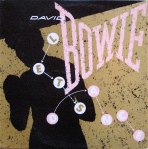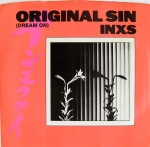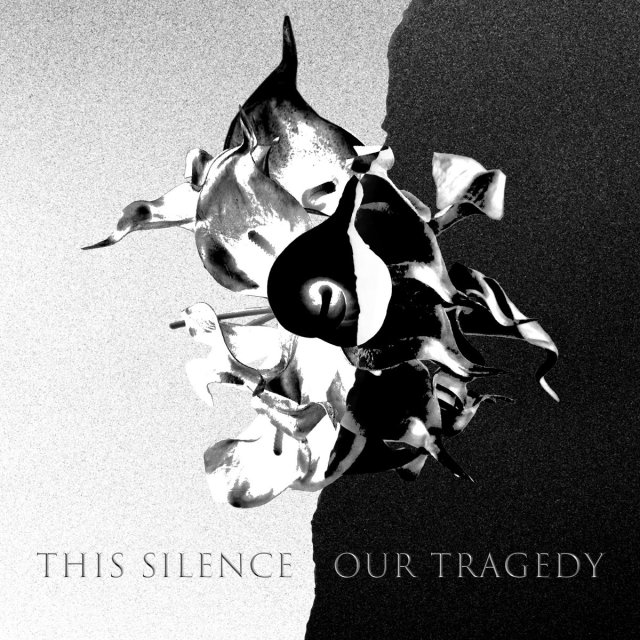 Last week I was having a workout and the sound system gave me a treat instead of the more typical horrifying 80s CHR dross [Journey, I’m looking at you]. INXS’ “Original Sin” hit the pre-dawn gym floor. It got me to reminiscing about the presence of Nile Rodgers productions for artists near and dear to my heart as his producer’s star became ascendant during the decade that saw him mine a ton of platinum. After his band CHIC, reached their sell-by date, he made the move to production; first delivering a career best for Diana Ross that cemented his reputation as a hit maker but eventually moving on to produce New Wave acts who at first glance, would have seemed to have had little in common with the disco world that he emerged from.
Last week I was having a workout and the sound system gave me a treat instead of the more typical horrifying 80s CHR dross [Journey, I’m looking at you]. INXS’ “Original Sin” hit the pre-dawn gym floor. It got me to reminiscing about the presence of Nile Rodgers productions for artists near and dear to my heart as his producer’s star became ascendant during the decade that saw him mine a ton of platinum. After his band CHIC, reached their sell-by date, he made the move to production; first delivering a career best for Diana Ross that cemented his reputation as a hit maker but eventually moving on to produce New Wave acts who at first glance, would have seemed to have had little in common with the disco world that he emerged from.
Debbie Harry – Backfired
The first time that I ever had the Nile Rodgers name in my Record Cell was when I bought the debut solo album by Blondie’s Debbie Harry. 1981’s “Koo Koo” was a somewhat divisive record by the eclectic singer who had her biggest hits with disco, calypso, and primordial hip hop. In the sense that each of these genres provided number one smashes for Blondie, in retrospect it’s not all that shocking that when Ms. Harry and her then beau Chris Stein stepped out from Blondie, that they hitched their wagon to the former CHIC maven. I remember that when on Saturday Night Live solo in 1980, she covered a Teddy Pendergrass hit [“Love TKO”] so the strong R+B vibe of “Koo Koo” was not unprecedented. That said, the single “Backfired” was, like much of the album, written or at least co-written by Rodgers with his partner Bernard Edwards. It’s a fairly typical funky R+B song, not really disco, per se. It had a humorous flair but Harry seemed a bit lost in the song. Irony is her strength and the playful humor of the song might have been a better fit for the more light hearted Tom Tom Club, looking back to 1981.
David Bowie – Let’s Dance
The first time I heard “Let’s Dance” I was flabbergasted at the juxtaposition of strident swing horns and the barbershop quartet backing vocals. It was an awkward mix that never ever worked for me. The banality of the lyric was the biggest disappointment of all. The whole affair had a borderline fascist-disco vibe that in retrospect, reminded me of a song the Thin White Duke might have sung back in 1976. With Bowie’s penchant for not throwing away any idea, who knows. it might have begin its life in just that fashion? The hollow romanticism of the lyric marked it thusly, and was mated with stridently bombastic music that reeked of “Triumph of the Will.” With blues guitarist Stevie Ray Vaughan added to the unlikely mixture, one was left with a David Bowie single that failed on every level for my ears. Rodgers’ production is clean, bright, and professional, which works to the arrangement’s detriment, I think. A little scuzz might have given this track some mystery to pull my ears in.
INXS – Original Sin
Now that’s more like it! Nile Rodgers has a plastic sounding sheen to his productions that more often than not rubs me the wrong way. Here, it sounded right at home. The pulse-pounding rhythm track and chugging synths juxtaposed against Kirk Pengilly’s urgent sax created a rain slicked night pavement that enriched the romanticism of the lyric. Speaking of which, I would imagine that the lyrics had a lot of personal appeal to Rodgers, himself the product of a mixed marriage. Almost immediately, this became my favorite Nile Rodgers production and nothing else has managed to topple it from the list in my mind. When INXS’ album, “The Swing” followed this album, I was disappointed that Rodgers didn’t get a chance to produce any more than this single. In fact, I can’t believe that I’ve never heard the 12″ mix of this title! That needs to be rectified.
Duran Duran – Notorious
If I had wanted to hear a great Nile Rodgers album production as good as the INXS single, I’d have to have waited a couple years more. When he rejoined forces with Duran Duran after two previous singles, he finally got to make a full album with the recently slimmed down band, and the results were one of my favorite albums by the band. The title cut, “Notorious,” was released as an advance single and ultimately reached number two on the US charts. The Borneo Horns from the Saturday Night Live band got a chance to play on a great album following their earlier appearance on David Bowie’s poor “Tonight.” The resulting song became a Duran classic and gave Nile Rodgers a chance to shine as he played the lead guitar on the track following the departure of Andy Taylor.
There is a snapshot of Nile Rodgers’ production portfolio as it relates to artists in the Record Cell. I have other music he produced but this is a quick overview of his production style. Conspicuously absent from my Record Cell is an album that I have been looking for for decades. I have never seen a copy of “Talk Back” by Spoons, but it finally reached CD a few years ago and is on my seemingly endless want list.
– 30 –











![Chris Cross: 1952-2024 [part 2]](https://i0.wp.com/postpunkmonk.com/wp-content/uploads/2024/04/ultravox-cross.jpg?resize=200%2C200&ssl=1)



I thought it absurd that in America Blondie never had a hit with their effervescent blend of girl group kitsch, 60’s surf, and power pop, but I had no beef with the “urban” styles of disco, rap and reggae that they added to the mix which finally brought them mega-fame. I was always on-board with the Chic-ness of Koo Koo, and frankly my love for this album has grown and grown through the intervening years. “Backfired” wears its sass proudly, Debbie coolly gliding through the airy funk of Rodgers and Edwards. I was so bummed that Nile’s autobio had no mention of working on Koo Koo – hopefully he’s saving some of the good stuff for a sequel.
I’m so predictable, right Monk?
PS – I’m not a Let’s Dance lover, but for me the other two singles mentioned are highlights of INXS’s and Duran Duran’s discographies.
LikeLike
Taffy – I need to revisit “Koo Koo.” I traded it in during the Great Vinyl Purge and I think that I would enjoy it a lot more now. The 2011 DLX RM with the bonus 12″ mixes are in my sights. But you make a good point. Blondie only had hits in the US with the sort of music that their earliest fans think of as atypical for them. It is kind of crazy when you think about it! Their hits are not the go-to tracks that I think of when I think of Blondie. I may like some of them, but they are what made Blondie, well, Blondie.
The fact is that “Call Me,” their rock-disco mega smash, is the closest thing to Power Pop that sold in great numbers in the Blondie canon. It was always a bitter pill for me that the album that followed their “Heart Of Glass” breakthrough, the stellar “Eat To The Beat,” barely managed gold status and the fistfuls of would-be hits it contained, largely fell on deaf ears. It should have been their crowning glory.
LikeLike
Nile Rodgers’ abilities cannot be denied. His success with bands I enjoy certainly can be critiqued, though. Koo Koo is a difficult album. This doesn’t make it a bad album, but it’s difficult for me to approach, as I have a fairly well defined idea of what I look for from Deborah Harry/Blondie. Working with Rodgers and Edwards made sense, but it is not a product that strikes with immediate enjoyment to these ears. It has crept into my listening more over the last 15 yrs or so, but was left to the “back racks” in my collection for just as long.
Let’s Dance is one of the greatest let downs by any artist I consider to be a foundation in my music collection. Going on about it would take up a couple blog posts, I’m afraid. Nile Rodgers’ contribution and oversight is probably on of the least offensive things about Let’s Dance.
I have to say that Rodgers’ renaissance in the past couple year has been welcome. Whether it’s his contributions to Daft Punk or Disclosure, he seems to still have his hand on the pulse of popular music. I’ve mentioned before how I’d like to see Rodgers work with Heaven 17. He and Martyn Ware seem to have a lot in common in their approach to sound and rhythm.
LikeLike
Echorich – Good call on the Nile/H17 crossover potential! We know Martyn is a fan so here’s to it eventually happening. You also make a good point. The sadness of “Let’s Dance” is firmly on Bowie’s shoulders. He was driving that bus. Rodgers was surprised at the brief he was given by Bowie and had no choice but to comply. At least with “Black Tie, White Noise” he got to make half of a decent, interesting Bowie album. The cover of “Night Flights” is a real highlight.
LikeLike
I had quite the excellent chance to see Nile Rodgers & Chic at Outside Lands here in SF last year, and HOT DAMN was he and the band killin’ it. (Especially since his band was a last minute replacement.) Nile had a wide grin pasted on his face all through the set, he was having so much fun. One of the best parts was a long medley of non-Chic songs he had a hand in, which included “Let’s Dance”–he had his drummer singing that one–and everyone loved it.
LikeLike
Jon Chaisson – I certainly enjoyed CHIC at Moogfest this year and since he had his usual band, they didn’t do a medley but full versions of his portfolio tracks. That was the first time I could accept “Let’s Dance” without any Bowie association. It stunk that we had to cut the last 20-30 minutes of CHIC’s set due to the dreaded festival scheduling conflict syndrome. In retrospect, we should have stayed at his show. The set we left for was not as good.
LikeLike
If someone other than Bowie had recorded “Let’s Dance,” I bet folks wouldn’t have as big of a problem with it. Though because he did, and I can understand the disappointment. I personally don’t find anything offensive with the song. Yes, there are some incongruences (e.g., the presence SRV, others you mentioned), I’ll give you that. But if you willingly suspend disbelief for a moment, you realize that despite the lyrics, the actual singing is fantastic, and that guitar solo is pretty good.
LikeLike
zoo – Hell, there’s nothing wrong with Bowie’s vocal on the title track! I still can’t agree on the guitar solo, though. The version that Bowie plays on the “VH1 Storytellers” album halfway redeems that song, until he retreated into the original arrangement after an intriguing new and more humane start. I find the melodic “hooks” of the dominating “swing” horns to be bludgeoningly graceless and overpowering. That colors the emotions that the song triggers. When I listen to it, it sounds like a Nazi Nuremberg rally to me. It is the sound of shock and awe replete with tanks rolling over pitiable human resistance. But you make a good point about the song in other hands. I was able to finally enjoy it in CHIC’s hands live and was singing along. It’s right in my vocal range so singing along is kind of fun for me, in spite of my misgivings. It’s just that the Bowie version sounded inhumane to me. I still suspect that it was a leftover from “Stationtostation.”
LikeLike
You make a valid assertion Monk, Let’s Dance has, in its core a feel that works with StationToStation. If Let’s Dance was allowed to be a full on Krautrock stomp with real disco rhythms as a counterpoint it might have been genius. But it has never sounded honest to me, more like a calculation and last ditch effort for world domination.
LikeLike
Echorich – Ding-Ding-Ding-Ding-Ding!!! Collect your payout, sir! You just hit the jackpot.
LikeLike
yes indeed, sirs. But, lest we forget, Bowie actually had two #1 Billboard hits in the US – Fame hit the top spot a good 8 or so years prior to Let’s Dance. Who cares, one might say. Except it proves that commercial success was/is possible for him without resorting to such last ditch efforts.
Of course I’ve no idea how many copies of the Young American albums were sold, but I’ll guess it was millions less than Let’s Dance (the album).
LikeLike
Taffy – “Young Americans” = gold. “Let’s Dance” = platinum. Only one of them had a number one song that I loved. Even so, for two decades “Young Americans” was a “problem record” for me. When I first bought it in 1981, I didn’t care for it much at all, save for the title track and “Fame.” 33 years later and I can enjoy about half of it. Some of the best tracks were bumped for the Harry Maslin/John Lennon sessions at the end. Good thing that those tracks eventually surfaced on the Ryko DLX RMs! Maybe I should do a “Tim” and compile an ideal version of “Young Americans?”
LikeLike
I have loads of time for Young Americans. By Diamond Dogs, the Ziggy bubble was certainly getting a bit thin to contain Bowie and his mind full of ideas. Ziggy played Philly and had an epiphany. For my money, Bowie is the inventor of British Blue Eyed Soul – the Blue Eyed Soul that would be so successful a decade later. As Bowie likes to do, the title track lays down the gauntlet, Luther Vandross, Ava Cherry and the amazing Robin Clarke grounding the Space Oddity firmly back to earth and on American soil. Win is Bowie in crooner mode – something I always enjoy. Fascination plays with free form funk Right is like the blueprint for every song 80’s blue eyed soulsters like Martin Fry or Robert Howard would use for some of their greatest work. If there’s any throw away on the album it’s Bowie’s interpretation of Across The Universe. It’s always seemed a bit unnecessary to me. Can You Hear Me or John, I’m Only Dancing were likely meant to be a single, but by then, Bowie was in his freak out creative mode working on what would be StationToStation and three singles from a Bowie album was still a stretch for RCA in America. Fame, of course is a stellar track. Alomar’s guitar riff and Bowie and Lennon playing off each other created a Rock classic. I think Young American’s is a really important album for Bowie, it works well as a bridge from Ziggy into The Thin White Duke. And while StationToStation, which followed, is a creation all unto itself and only partially related to the coming Bowie+Eno glories, it benefited from Bowie’s moving away from the Glam of Ziggy on Young Americans with a distinct confidence.
LikeLike
Echorich – Good points made, to be sure, but extra credit for coining the phrase ” Ziggy bubble!” Loop it in Yellofier and I think you have infectious rhythm track!
LikeLike